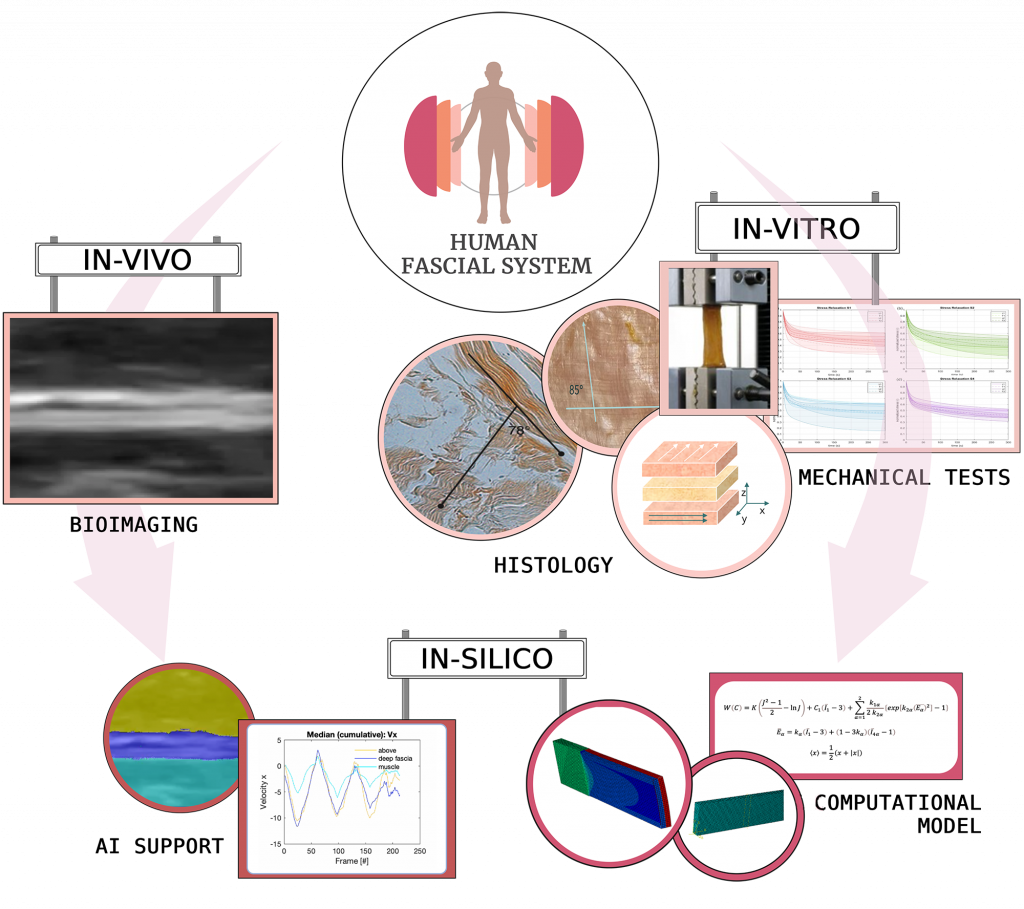
Human fascial tissue has implications ranging from tissue engineering to recovery medicine and sports performance, due to its structural and force transmission role. In this context, in vitro, in silico and in vivo studies have been developed to study the fascial system from different perspectives. Specifically, mechanical tests, computational model simulations, ultrasound evaluations and artificial intelligence approaches are underway. These results are fundamental to simulate and predict the performance of the fascia, with direct implications in the field of quality of life, i.e. physical exercise and rehabilitation (before-during-after treatments/follow-up). Automatic identification of fascial layers could support real-time assessment/classification and be integrated into physical therapy routine to focus intervention on precise regions of interest and reassessment (higher quality of medical intervention, less time-to-patient with cost reduction). This is a small step towards preventative, evidence-based, site- and patient-specific care.
For more information contact:
Chiara Giulia Fontanella
phone: +39 049 8276754
e-mail: chiaragiulia.fontanella@unipd.it
Carla Stecco
phone: +39 049 8272300
e-mail: carla.stecco@unipd.it
Lorenza Bonaldi
e-mail: lorenza.bonaldi@phd.unipd.it